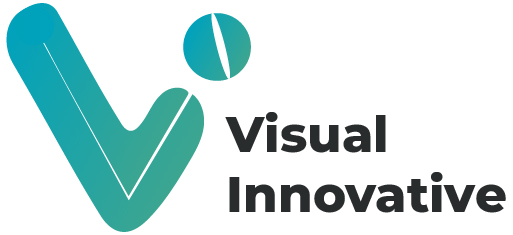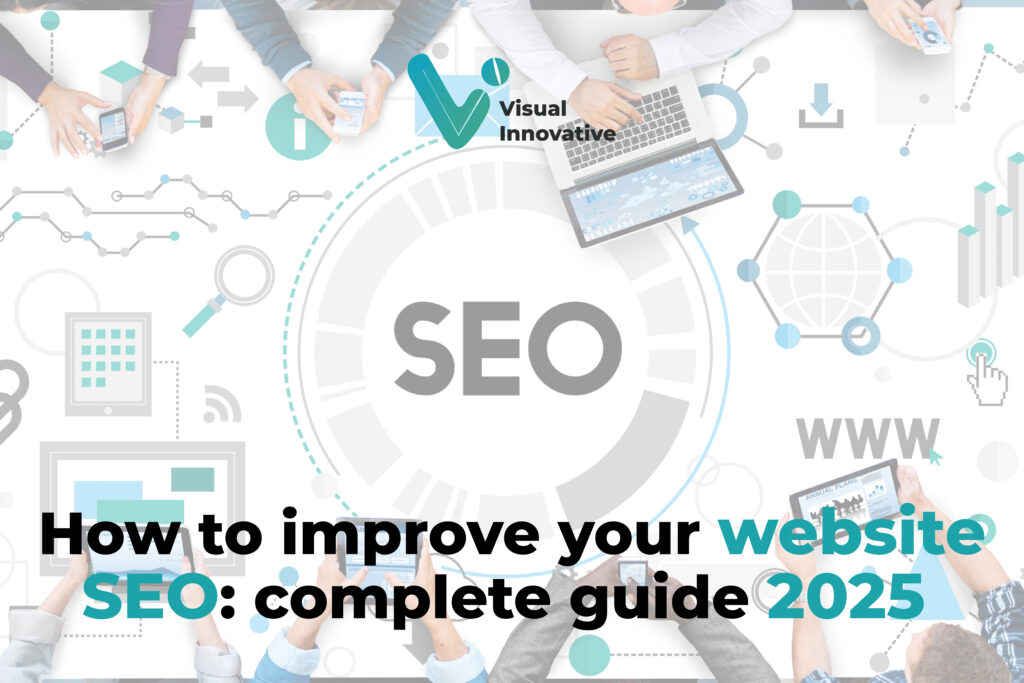What is SEO?
SEO, or Search Engine Optimization, is the process of enhancing your website to improve its visibility on search engines like Google. The goal is to attract organic traffic by making your site more relevant and user-friendly for specific search queries. SEO involves various strategies, including optimizing website content, keywords, metadata, and technical elements like site speed and mobile responsiveness. By improving these factors, you increase the chances of ranking higher in search results, which leads to more visitors. In 2025, SEO is vital for businesses to stay competitive and ensure long-term online success.
Why SEO Matters in 2025?
SEO is more important than ever in 2025 due to rapid changes in search engine algorithms and user behavior. Search engines are increasingly focused on delivering highly personalized, relevant results, prioritizing factors like content quality, user experience, and site performance. With more users relying on mobile devices for browsing, mobile-first indexing has become a key ranking factor. Additionally, voice search optimization is gaining importance as smart devices and virtual assistants become more common. To stay competitive, businesses must adapt to these changes by optimizing for mobile, speed, and user intent in their SEO strategies.
SEO Trends in 2025
- AI and SEO
AI-powered tools, such as ChatGPT, are revolutionizing content creation by producing high-quality, keyword-optimized content more efficiently. These tools help businesses stay competitive by enhancing user engagement and ensuring content relevance. - Voice Search Optimization
As voice assistants become more prevalent, optimizing for voice search is crucial. Targeting conversational, long-tail keywords will help businesses align with the growing trend of voice-activated searches and improve their chances of ranking higher. - Mobile-First Indexing
With mobile usage surpassing desktop, search engines now prioritize mobile-friendly websites. Ensuring your site is optimized for mobile is essential for maintaining high search rankings and providing an optimal user experience. - Core Web Vitals Importance
Core Web Vitals, including site speed, interactivity, and visual stability, are now major ranking factors. A website that loads quickly, provides smooth interactions, and avoids layout shifts is more likely to rank higher in search engine results, improving user satisfaction.
Best Source Keyword Research for SEO in 2025
Importance of Keyword Research: The Foundation of SEO
Keyword research is the foundation of any successful SEO strategy. By identifying the terms and phrases your target audience is searching for, you can create content that directly addresses their needs and queries. This not only helps drive more relevant traffic to your site but also improves your chances of ranking higher in search engine results. Effective keyword research involves targeting both short-tail and long-tail keywords, focusing on user intent, and analyzing competitor strategies. In 2025, understanding and applying keyword research is crucial for staying competitive in a constantly evolving digital landscape.
Best Tools for Keyword Research
- Google Keyword Planner
Google Keyword Planner is a free and reliable tool for discovering popular search terms. It provides data on search volume, competition, and potential traffic, making it an excellent starting point for keyword research. - SEMrush
SEMrush is an advanced SEO tool that allows users to perform in-depth keyword research, competitor analysis, and track keyword performance. It’s particularly useful for identifying keyword opportunities and understanding search trends. - Ahrefs
Ahrefs is known for its robust backlink analysis and keyword tracking features. It helps businesses uncover profitable keywords, track keyword rankings, and refine SEO strategies for improved organic visibility.
Finding Long-Tail Keywords
Long-tail keywords are longer, more specific phrases that often have lower competition but higher conversion rates. By targeting these keywords, businesses can attract more qualified traffic to their websites. Long-tail keywords align closely with user intent, making it easier to rank for niche topics and provide solutions to specific queries, ultimately improving SEO rankings and boosting conversion
How to Use LSI Keywords: Enhancing Relevance
LSI keywords are related terms and phrases that help search engines understand the context of your content. By incorporating LSI keywords, you can enhance content relevance and improve SEO rankings. These keywords naturally support your primary keywords, making your content more comprehensive and valuable to users.
Using Ranking Keywords Effectively in 2025
Focus on Intent-Based Keywords
In 2025, it’s essential to focus on intent-based keywords, which align with what users are actually searching for. Understanding user intent allows you to create content that better satisfies their needs, increasing your chances of ranking higher and engaging visitors.
Local SEO Keyword Targeting
Local SEO is becoming increasingly important. Targeting location-based keywords helps businesses appear in local search results, improving visibility and driving relevant traffic. Optimizing for local search intent ensures that your website ranks for “near me” queries, boosting local conversions and helping you compete in your region.
Best Practice On-Page SEO Optimization
Title Tags & Meta Descriptions
Title tags and meta descriptions are critical for both SEO and user engagement. A compelling, SEO-friendly title should include primary keywords while enticing users to click. Keep title tags under 60 characters and meta descriptions within 155 characters to ensure they display properly on search engines.
Header Tags (H1, H2, etc.)
Header tags (H1, H2, etc.) structure your content for both readability and ranking. Use H1 for the main title and H2, H3 for subsections. This not only improves user experience but also signals the importance of your content to search engines.
Content Optimization
Content should naturally incorporate target keywords without keyword stuffing. Maintain a keyword density of 1-2% and ensure the content is valuable and relevant to the user. Use multimedia like images and videos to engage visitors and enhance content quality.
Internal Linking
Internal linking improves site structure and spreads link authority across pages. Link to relevant pages within your site to boost rankings and improve navigation.
URL Structure
Clean, descriptive URLs are essential for both SEO and user experience. Include keywords in your URLs and avoid long, confusing strings of numbers or symbols.Mobile Optimization
With mobile-first indexing, ensuring your website is mobile-friendly is critical for ranking in 2025. A responsive design improves user experience, site speed, and search engine rankings, making it a key factor in SEO.
Off-Page SEO Best Strategies
Building High-Quality Backlinks
Acquiring backlinks from authoritative, relevant sources is crucial for boosting domain authority and improving search engine rankings. Focus on earning natural backlinks through quality content and outreach to industry leaders.
Guest Blogging and Outreach Strategies
Guest blogging on reputable websites helps you build backlinks, increase visibility, and establish credibility within your industry. Engaging in outreach by building relationships with other bloggers and influencers can lead to mutually beneficial partnerships.
Social Media Signals and SEO
Social media signals, such as shares and likes, indirectly impact SEO by increasing brand visibility and driving traffic. While not direct ranking factors, social media engagement can boost content reach and encourage backlinks.
Online Reviews and Their Impact on Rankings
Positive online reviews on platforms like Google My Business and Yelp enhance local SEO and trustworthiness. Reviews contribute to higher rankings in local search results and build credibility with potential customers.
Technical SEO for Better Ranking
Site Speed Optimization
Site speed is a crucial ranking factor. Slow-loading pages lead to higher bounce rates and lower rankings. Use tools like Google PageSpeed Insights to analyze and improve loading times by optimizing images, leveraging browser caching, and minifying CSS/JS files.
Mobile-Friendliness
With mobile-first indexing, Google prioritizes mobile-friendly websites. Ensure your site is responsive and offers a seamless mobile experience to improve rankings and user engagement.
Structured Data (Schema Markup)
Implementing schema markup helps search engines understand your content better and can lead to rich snippets in search results, improving visibility and click-through rates.
XML Sitemaps & Robots.txt
XML sitemaps help search engines crawl your site efficiently, while robots.txt files direct crawlers on which pages to index. Proper implementation ensures proper indexing and helps optimize your site’s SEO.
HTTPS and Site Security
SSL certificates are essential for HTTPS encryption, ensuring secure connections. Google considers HTTPS a ranking factor, and securing your site boosts user trust and SEO performance.
What is Local SEO?
Local SEO focuses on optimizing your website and online presence to attract customers from specific geographic locations. It helps businesses rank higher in local search results, making it easier for potential customers to find you.
Setting Up and Optimizing Google My Business Profile
One of the most important steps in local SEO is setting up and optimizing your Google My Business (GMB) profile. Ensure your business name, address, phone number (NAP), and business hours are accurate. Add high-quality images and a compelling description to enhance your visibility in local search results.
Building Local Citations
Local citations—mentions of your business on local directories, websites, and social platforms—help improve your visibility. Consistent NAP information across these citations boosts local rankings and credibility.
Optimizing for “Near Me” Searches
Target “near me” searches by including location-based keywords in your content, meta tags, and GMB profile. These searches have high intent, so optimizing for them can drive more qualified local traffic.
Encouraging Customer Reviews for Better Local Visibility
Customer reviews play a crucial role in local SEO. Positive reviews on platforms like Google and Yelp improve trust and influence rankings. Encourage happy customers to leave reviews to boost local credibility and visibility.
Content Strategy for SEO in 2025
Content is King: Why High-Quality Content Still Matters
In 2025, high-quality content remains the cornerstone of SEO. Search engines prioritize valuable, well-researched content that answers users’ questions and meets their needs. Crafting informative, engaging content not only improves rankings but also builds trust with your audience.
How to Create SEO-Friendly Content
Creating SEO-friendly content involves integrating keywords naturally into your text, avoiding keyword stuffing. Focus on the user experience and ensure content flows naturally while providing value. Use headings, bullet points, and short paragraphs for better readability.
The Role of E-A-T in Content Creation
Expertise, Authoritativeness, and Trustworthiness (E-A-T) are critical for ranking. Ensure your content is written by experts or backed by credible sources to improve authority and trust.
Importance of Answering User Queries
With Google’s BERT algorithm, providing clear, direct answers to user queries boosts your chances of ranking. Focus on user intent and create content that directly addresses search questions.
Blogging for SEO
Regularly updating your blog with relevant, high-quality posts helps improve SEO. It drives traffic, builds authority, and provides fresh content for search engines to index.
Video SEO
Video content is becoming increasingly important. Optimizing videos with relevant keywords, descriptions, and metadata enhances visibility on platforms like YouTube and in search engine results.
Analyzing SEO Results
Using Google Analytics and Google Search Console to Track Progress
To measure your SEO success, use tools like Google Analytics and Google Search Console. These tools provide valuable insights into your website’s performance, traffic sources, and user behavior.
Key Performance Indicators (KPIs) to Monitor
Focus on important KPIs such as organic traffic, which indicates how well your SEO efforts are driving visitors. Track keyword rankings to monitor the effectiveness of your optimization. Bounce rates and engagement metrics show how well your content resonates with visitors and can help identify areas for improvement.
Adjusting Strategies Based on Analytics
Regularly review your data and adjust strategies accordingly. If certain keywords aren’t performing, consider refining your content or targeting new ones to optimize your SEO results.
Future of SEO and Conclusion
Voice Search and AI’s Growing Impact on SEO
As voice search and AI technologies evolve, optimizing for conversational keywords and AI-powered tools becomes essential. These technologies are shaping how users interact with search engines, requiring businesses to adapt their SEO strategies accordingly.
The Role of User Experience in SEO Rankings
User experience (UX) continues to play a significant role in SEO rankings. Factors like page speed, mobile optimization, and intuitive navigation directly impact how search engines assess your site.
Staying Updated with Google’s Algorithm Changes
Google’s algorithms are constantly changing. Staying updated with these changes is crucial for maintaining strong SEO performance.
Final Thoughts on Improving Your Website SEO in 2025
To stay competitive in 2025, focus on a comprehensive SEO strategy that includes high-quality content, technical optimization, and user-centric design. Keep adapting to new trends to maintain strong rankings and drive sustainable growth.
Call to Action
Now that you have a comprehensive guide to improving your website’s SEO in 2025, it’s time to take action! Start implementing the strategies we’ve discussed, from optimizing your content and mobile experience to refining your technical SEO and local SEO efforts. By using tools like Google Analytics and staying updated with SEO trends, you’ll ensure your site remains competitive. We’d love to hear about your experiences—whether you’ve seen improvements or have questions along the way. Share your thoughts or ask questions in the comments section below, and let’s continue the conversation about improving SEO in 2025 with Visual Innovative!
FAQs
Answer: Focus on mobile-first design, improving Core Web Vitals (loading speed, interactivity), creating high-quality content, and optimizing for AI/voice search.
Answer: Speed up load times, ensure mobile responsiveness, simplify navigation, and use clear CTAs to enhance user experience and SEO.
Answer: Use relevant keywords, create detailed, helpful content, update old posts, and add multimedia like images and videos to boost SEO.
Answer: Backlinks boost authority and rankings. Build them by creating shareable content, guest blogging, and reaching out for link placements.




